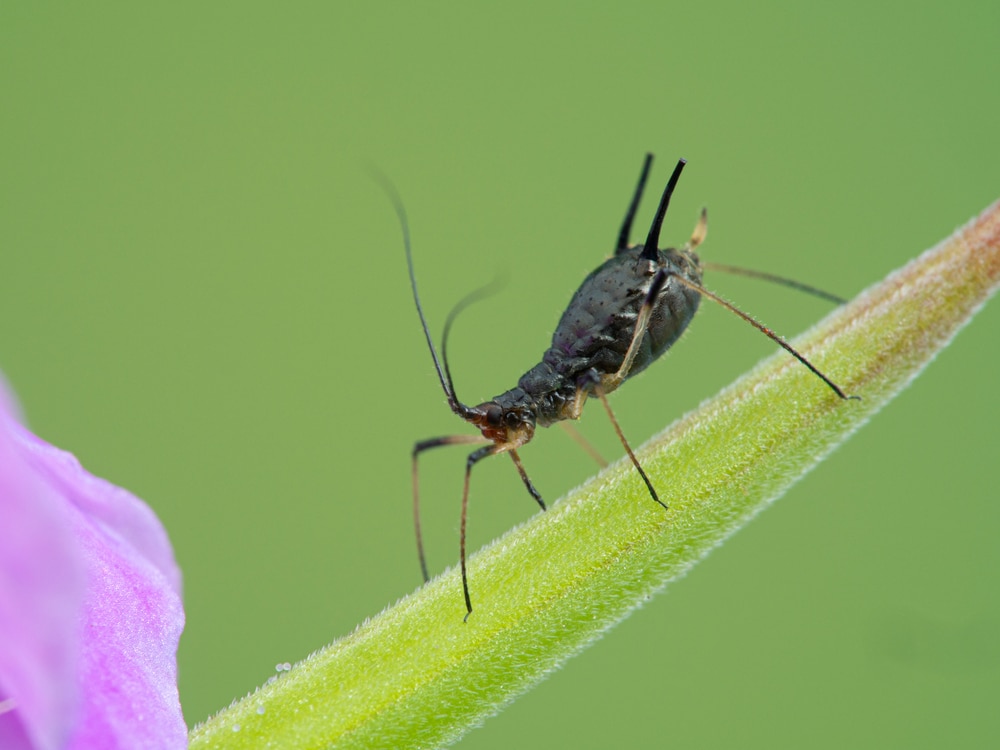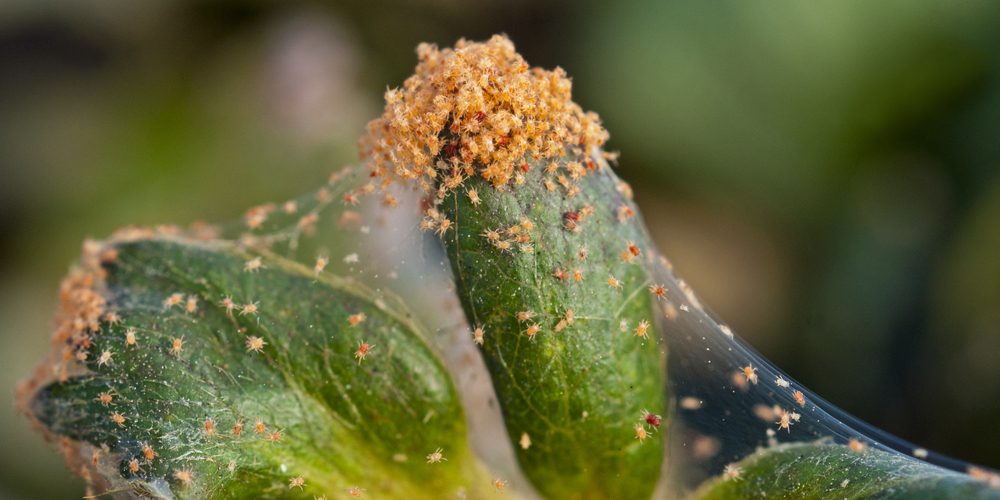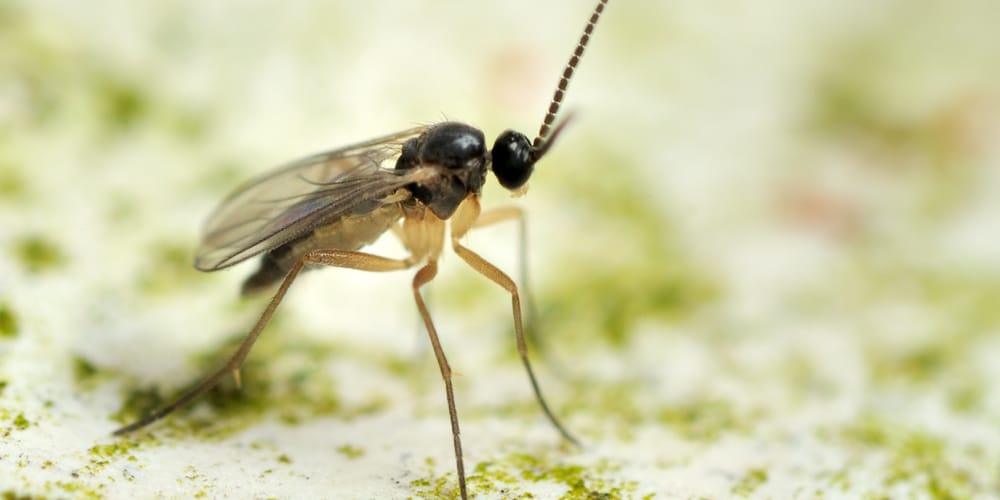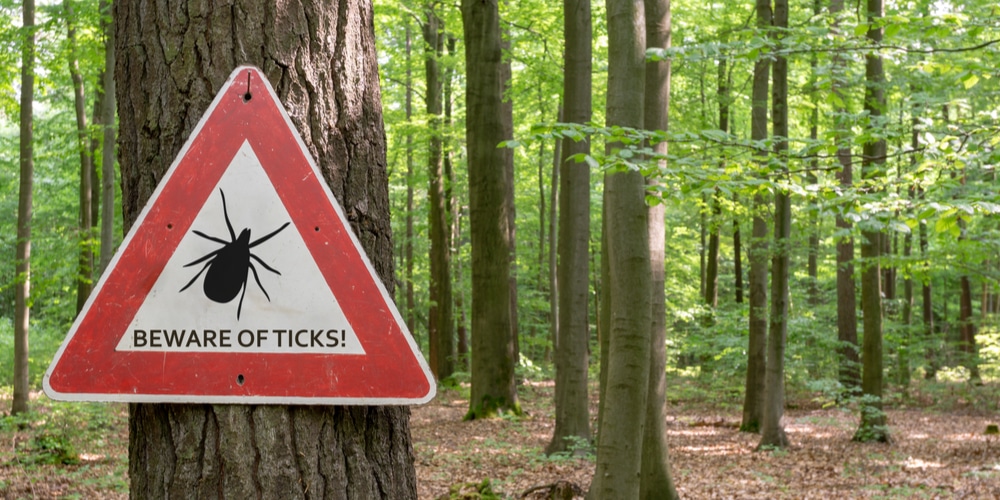If you’re a plant lover, you know how much time goes into caring for your garden and houseplants. You might also know how frustrating it is when pests move into your garden and threaten its health. Are you seeing an infestation of tiny black bugs that look like poppy seeds?
This comprehensive guide will help you identify what they might be and what you can do about them.
What Are The Tiny Black Bugs On My Plants?
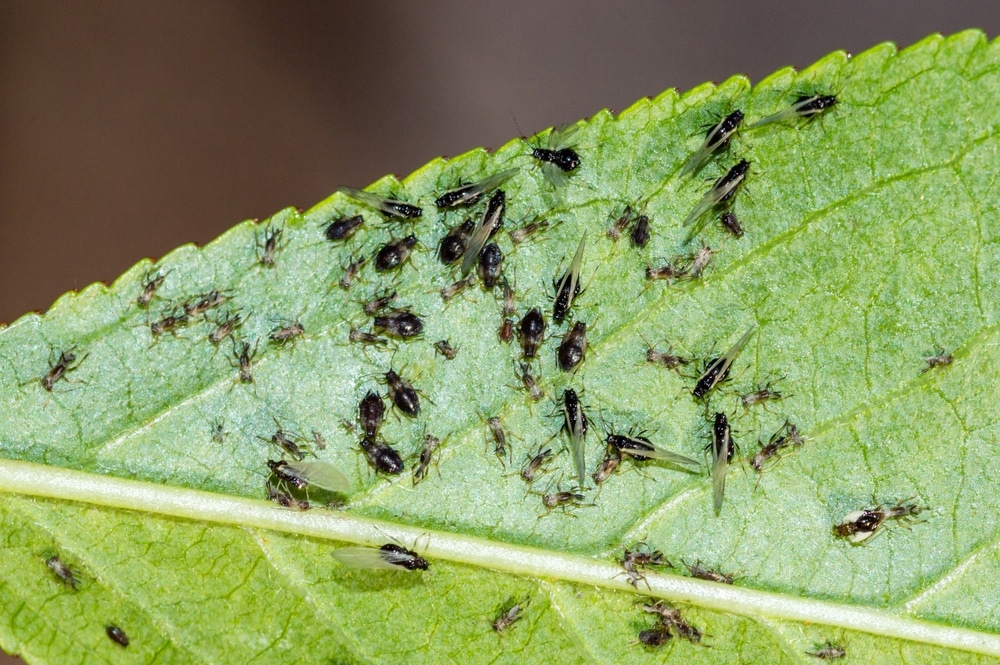
Although some insects can be beneficial, those tiny black bugs are most likely pests damaging your plants. They feed on the carbohydrate-rich sap that can be found in the leaves, stems, or roots.
They can drain the life of your plants and cause irreversible damage. If you’ve found some tiny black bugs, these species below are the most likely culprits.
Black Aphids
Black aphids are commonly-found pests found in both the garden and houseplants. You’ll typically find them in groups near softer plant tissue, like new shoots and unopened buds. They feed on sap, and the tender plant tissue is easier to pierce with their needle-like mouth.
Although their feeding usually won’t cause permanent damage, they can spread deadly plant viruses. These include the cucumber mosaic virus, which causes damaged fruit and stunted plant growth.
To prevent aphids from overtaking your garden and spreading disease, make sure to check your plants regularly for infestations. You can use organic neem oil to control any established populations and prevent future infestations.
Spider Mites
Spider mites get their name from the silky web they secrete when they take residence on a plant. These insects are relatively small and may be difficult to see with the naked eye. If spider mites are your problem, you’ll see these symptoms in your plants:
- Silvery leaves
- White spotting on leaves
- Plants that look faded and yellowish or grayish
- Leaves covered by a thin, translucent webbing
If you suspect spider mites are hurting your plants, there are several options for their removal. The simplest way to remove them is to periodically rinse the plant with water.
For heavier infestations, you can introduce natural predators to reduce their population. Several species of beneficial mites will eat spider mites, like the Persimilis mite. You can conveniently purchase these online and introduce them to your garden to curb the population of these harmful pests.
Fungus Gnats
These petite black flies live in the soil around your plants. The adult flies don’t cause much damage, but their larvae burrow in the dirt and munch on roots. They can cause considerable damage to root systems, especially to seedlings and young plants. A common sign of fungus gnat infestation is wilting.
To control this pest, make sure to avoid overwatering your potting soil. You can also purchase sticky paper traps to catch adults before they can lay eggs.
Ticks
It’s worth noting that sometimes you’ll find ticks hanging around plants and gardens. While they aren’t a threat to your greenery, these parasites can threaten your health. They carry and spread several diseases, such as Lyme disease and Spotted Fever.
To protect yourself while you’re caring for your plants, make sure to:
- Wear long pants and a long-sleeved shirt
- Apply bug repellant that contains DEET
- Thoroughly check yourself for ticks before going inside
Final Thoughts
Garden pests like black bugs can be frustrating, but they don’t have to ruin your gardening life. If you find tiny black bugs that look like poppy seeds on your plants, don’t despair. A little time tending to your plants will prevent damage and keep your garden happy.
